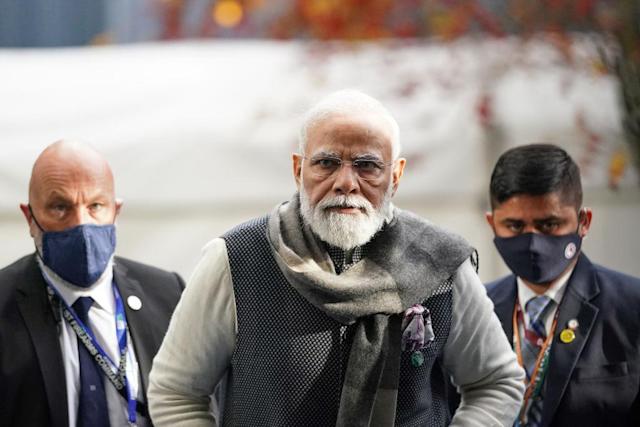India’s Farmers Have Forced Modi to Retreat But He Will Be BACK, With More Religious Polarization – By Debasish Roy Chowdhury
India’s Hindu nationalist prime minister isn’t given to apologizing. For years, hoping for some sign of remorse, the media kept asking Narendra Modi if he ever regretted the 2002 pogrom against In in the western state of Gujarat, when he was its top elected official. The closest they ever got was when he said—more than a decade later—that it was natural for anybody to feel bad if a “puppy comes under the wheels” of a car.
So, when Modi made an apology of sorts on Nov. 19, promising to repeal agrarian laws that had triggered an unprecedented, year – long farmers’ protest, it was met with joy, surprise and skepticism in equal measure. While the opposition can’t stop exulting at Modi’s about face, it is also warning that it could be a ploy to revive the laws later. Pointedly, Modi said sorry for failing to persuade the farmers of the necessity of the laws, not for the measures themselves.
The farmers, whose protests attracted global attention, have been celebrating the climbdown. But they are not calling off the protests until the formal repeal of the three contentious farm laws—which were, in essence, a bid to replace the government – controlled agrarian sector with the free market—and the introduction of guaranteed minimum prices for crops. That they won’t take the prime minister at his word is a function of the level of animosity between the two sides.
Modi’s government has, for months, been trying to defame the protesters as terrorists and stooges of China and Pakistan, turned Delhi into a fortress to prevent them from entering the capital, and tried using force to break up the agitation. More than 700 farmers died picketing Delhi’s outskirts in the course of the year, which the protesters squarely blame on Modi’s railroading of the laws through Parliament without due process, and his stubbornness in sticking with them.
For a man whose followers believe he is a redeemer who knows how to make India right, it isn’t easy admitting that he got something this important this wrong. But hubris is the least of his problems right now. Modi faces a difficult political test in about three months, when several states go to polls, and his mea culpa is a desperate strategic retreat to win a bigger war for his Bharatiya Janata Party (BJP). It exposes his weakness, to be sure, but the potential benefits of his climbdown may far outweigh the momentary humiliation.
Among the states heading into elections is the BJP’s power base of Uttar Pradesh, more commonly known as UP. With more than 200 million people, a population the size of Brazil, UP is one of the most backward of India’s 28 states—but it sends the highest number of directly elected parliamentarians to Parliament’s lower house, making it the most politically significant.
The farmers’ protests that have rocked the agrarian belt—stretching across western UP and the contiguous states of Punjab and Haryana—now threaten this bastion. UP has voted overwhelmingly for the BJP in the past, but now looks perilously close to slipping out of its control as farmer discontent mounts. It didn’t help that the son of one of Modi’s ministers is facing allegations in the state of mowing down four protesting farmers with his car.
This article first appeared in Time.

